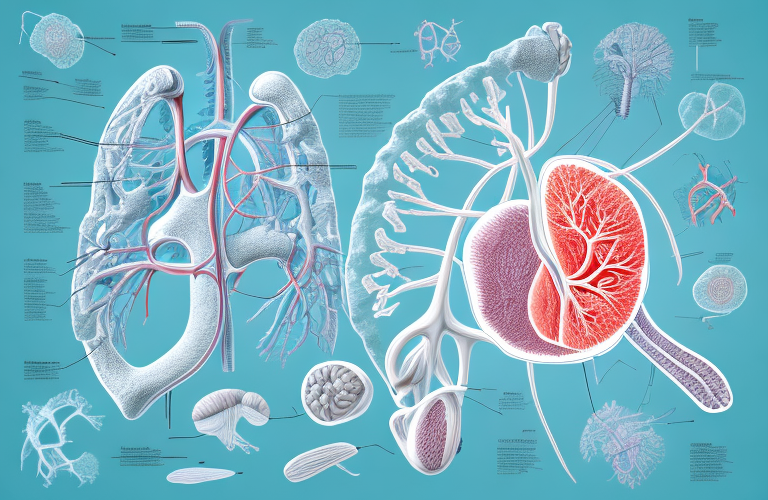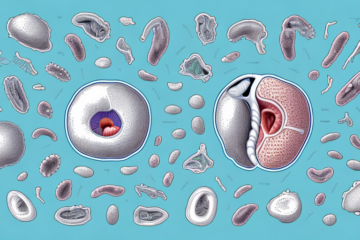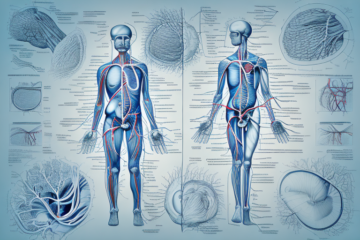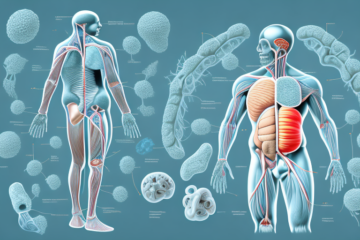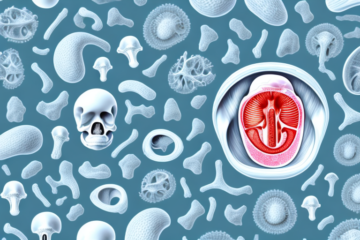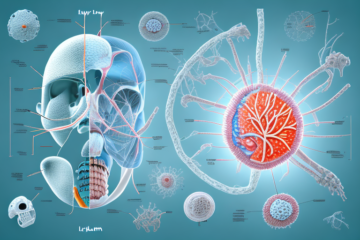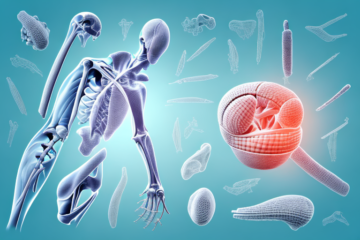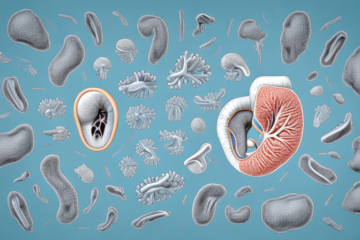The kidneys are essential organs responsible for several vital functions in the human body. These two bean-shaped organs, located in the abdomen on either side of the spine, play a crucial role in maintaining the body’s overall health and well-being. In this detailed article, we will discuss the anatomy of kidneys, how they function, common disorders that affect the kidneys, how to maintain good kidney health and much more.
What Are Kidneys and Why Are They Important?
The kidneys are two fist-sized organs that act as natural filters, removing excess water, waste products and toxins from the blood circulating in the body. They play a crucial role in maintaining the body’s fluid balance, blood pressure, electrolyte levels and acid-base balance. The kidneys are also responsible for producing hormones that regulate red blood cell production, bone health, and blood pressure.
In addition to their filtration and hormone production functions, the kidneys also play a role in regulating vitamin D levels in the body. Vitamin D is important for bone health and immune system function. The kidneys convert vitamin D into its active form, which can then be used by the body. Without functioning kidneys, vitamin D levels can become dangerously low, leading to a variety of health problems.
Understanding the Anatomy of Kidneys
The kidneys are located on either side of the spine, below the ribcage, and are protected by multiple layers of tissue and fat. Each kidney is made up of millions of tiny filtering units called nephrons, which are responsible for filtering the blood and forming urine. The urine made by the kidneys then flows down through the ureters and into the bladder before being eliminated from the body through the urethra.
The kidneys play a crucial role in maintaining the body’s overall health. They not only filter waste and excess fluids from the blood but also regulate blood pressure, produce hormones that stimulate the production of red blood cells, and activate vitamin D, which helps the body absorb calcium. In addition, the kidneys help maintain the body’s acid-base balance, which is essential for proper functioning of the organs and tissues.
However, the kidneys can be affected by various diseases and conditions, such as diabetes, high blood pressure, infections, and kidney stones. These conditions can damage the nephrons and impair the kidney’s ability to filter the blood and remove waste. In severe cases, kidney failure can occur, which requires dialysis or kidney transplant to sustain life.
The Role of Kidneys in the Body
The kidneys play a crucial role in maintaining a healthy body by regulating several bodily functions. Besides filtering the blood, the kidneys help maintain proper electrolyte levels, regulate blood pressure, and produce hormones that help regulate several bodily functions.
One of the key functions of the kidneys is to remove waste products from the body. These waste products include urea, creatinine, and excess salts. If the kidneys are not functioning properly, these waste products can build up in the body and cause serious health problems.
In addition to regulating electrolyte levels and blood pressure, the kidneys also play a role in maintaining bone health. The kidneys produce a hormone called calcitriol, which helps the body absorb calcium from food. Without enough calcitriol, the body may not be able to absorb enough calcium, which can lead to weak bones and an increased risk of fractures.
How Do Kidneys Filter Blood?
The kidneys filter blood by removing extra water and waste products from the blood. They use specialized structures called nephrons, which remove waste products by selectively filtering the blood and allowing necessary nutrients and substances to enter back into the bloodstream. The filtered waste products are then eliminated from the body through the urine.
It is important to note that the kidneys also play a crucial role in regulating the body’s fluid and electrolyte balance. They help maintain the proper levels of sodium, potassium, and other electrolytes in the blood, which is essential for the proper functioning of the body’s cells and organs. Additionally, the kidneys produce hormones that help regulate blood pressure and stimulate the production of red blood cells.
The Process of Urine Formation in the Kidneys
The process of urine formation in the kidneys involves several different steps. First, blood enters the kidneys through the renal artery and is filtered through the glomerulus, which consists of a network of tiny blood vessels. The filtered blood then travels through the renal tubule, which reabsorbs necessary nutrients and substances, while simultaneously eliminating excess water and waste products that become urine.
After the renal tubule, the urine flows into the collecting ducts, which lead to the renal pelvis and then to the bladder for storage. The amount of urine produced depends on various factors such as fluid intake, hormonal regulation, and kidney function. The kidneys play a crucial role in maintaining the body’s fluid and electrolyte balance, and any disruption in the urine formation process can lead to various health problems.
Common Kidney Disorders and Their Causes
There are several disorders that can impact the functioning of the kidneys. These disorders can be caused by a variety of reasons, including infections, congenital defects, autoimmune disorders, and lifestyle factors such as smoking and high blood pressure.
One of the most common kidney disorders is chronic kidney disease (CKD), which is characterized by a gradual loss of kidney function over time. This condition can be caused by a variety of factors, including diabetes, high blood pressure, and certain medications. CKD can lead to serious complications, such as kidney failure, if left untreated.
Another common kidney disorder is kidney stones, which are hard deposits that form in the kidneys and can cause severe pain and discomfort. These stones can be caused by a variety of factors, including dehydration, a diet high in salt and protein, and certain medical conditions. Treatment for kidney stones may include medication, dietary changes, or surgery, depending on the size and location of the stones.
Symptoms and Signs of Kidney Problems to Watch Out For
If you suspect that your kidneys are not functioning properly, there are several symptoms and signs to watch out for. These include decreased urine output, swelling in the legs and ankles, fatigue, nausea, vomiting, and high blood pressure. It is essential to seek prompt medical attention if you experience any of these symptoms.
Additionally, some people may experience pain in the lower back or side, frequent urination, difficulty urinating, or blood in the urine. These symptoms can indicate a more serious kidney problem and should be evaluated by a healthcare professional as soon as possible. It is important to maintain good kidney health by staying hydrated, eating a balanced diet, and avoiding excessive alcohol and tobacco use.
Diagnosing Kidney Diseases: Tests and Exams
There are several tests and exams that can be used to diagnose kidney disorders. These include blood and urine tests, imaging tests such as ultrasounds or CT scans, and kidney biopsies. These tests can help diagnose the underlying cause of the kidney disorder and help determine the best course of treatment.
Blood tests are commonly used to measure the levels of creatinine and urea in the blood. High levels of these substances can indicate that the kidneys are not functioning properly. Urine tests can also be used to check for the presence of protein or blood in the urine, which can be a sign of kidney damage or disease.
Imaging tests such as ultrasounds or CT scans can provide detailed images of the kidneys and surrounding structures. These tests can help identify any abnormalities or blockages in the urinary tract that may be causing kidney problems. Kidney biopsies involve taking a small sample of kidney tissue for examination under a microscope. This can help diagnose certain kidney diseases and determine the best treatment options.
Treatment Options for Different Types of Kidney Disorders
The treatment options for kidney disorders depend on the underlying cause of the disorder. Some common treatment options include lifestyle changes, medications, dialysis, or kidney transplant.
For example, if the kidney disorder is caused by high blood pressure, the first line of treatment may be to control blood pressure through medication and lifestyle changes such as a healthy diet and exercise. If the disorder is caused by a urinary tract infection, antibiotics may be prescribed to clear the infection and prevent further damage to the kidneys. In cases where the kidneys have failed completely, dialysis or a kidney transplant may be necessary to sustain life.
Lifestyle Changes to Maintain Healthy Kidneys
There are several lifestyle changes you can make to maintain healthy kidneys. This includes drinking plenty of water, eating a balanced diet, quitting smoking, exercising regularly, and managing blood sugar and blood pressure levels.
In addition to these lifestyle changes, it is important to limit your intake of alcohol and avoid over-the-counter pain medications, such as ibuprofen and aspirin, which can damage the kidneys if taken in excess. It is also recommended to get regular check-ups with your healthcare provider to monitor kidney function and catch any potential issues early on.
Preventing Kidney Diseases with a Balanced Diet
Eating a healthy, balanced diet can help prevent kidney disorders. This means consuming foods that are low in sodium, saturated fats, and added sugars, while also including plenty of fresh fruits, vegetables, and healthy sources of protein.
In addition to a balanced diet, staying hydrated is also important for kidney health. Drinking enough water helps flush out toxins and waste products from the body, reducing the risk of kidney stones and other kidney-related problems. It is recommended to drink at least 8-10 glasses of water per day to maintain proper hydration levels.
Understanding the Link between Diabetes and Kidney Health
Diabetes is a common cause of kidney disease. High blood sugar levels in people with diabetes can damage the kidneys over time, leading to the loss of kidney function. Managing blood sugar levels is essential to prevent or delay kidney damage in people with diabetes.
In addition to managing blood sugar levels, there are other steps that people with diabetes can take to protect their kidney health. These include maintaining a healthy blood pressure, quitting smoking, and avoiding excessive alcohol consumption. Regular check-ups with a healthcare provider are also important to monitor kidney function and detect any potential issues early on.
How High Blood Pressure Affects Your Kidneys
High blood pressure is another leading cause of kidney disease. High blood pressure can damage the blood vessels in the kidneys, leading to decreased kidney function. Managing blood pressure levels is essential to protect the kidneys from damage.
When blood pressure is consistently high, it can also cause protein to leak into the urine. This is a sign that the kidneys are not functioning properly and can lead to further damage if left untreated. It is important to monitor blood pressure regularly and take medication as prescribed by a healthcare provider to prevent kidney damage.
The Importance of Regular Check-Ups for Your Kidneys
Regular check-ups with a healthcare provider are essential for maintaining good kidney health. These check-ups can help identify potential problems early on, preventing or delaying the onset of kidney disease. Be sure to discuss any concerns you may have with your healthcare provider.
In conclusion, the kidneys are essential organs that play a vital role in maintaining overall health and well-being. Proper kidney function is essential for filtering waste products from the blood, maintaining proper electrolyte levels, and producing essential hormones. Maintaining a healthy lifestyle, managing blood sugar and blood pressure levels, and seeking prompt medical attention for any potential problems are all essential for good kidney health.
One of the most common causes of kidney disease is diabetes. High blood sugar levels can damage the blood vessels in the kidneys, leading to kidney damage or failure. It is important for individuals with diabetes to closely monitor their blood sugar levels and work with their healthcare provider to manage their condition.
Another important factor in maintaining good kidney health is staying hydrated. Drinking enough water helps to flush out toxins and waste products from the body, reducing the workload on the kidneys. Aim to drink at least 8 glasses of water per day, and more if you are physically active or live in a hot climate.

